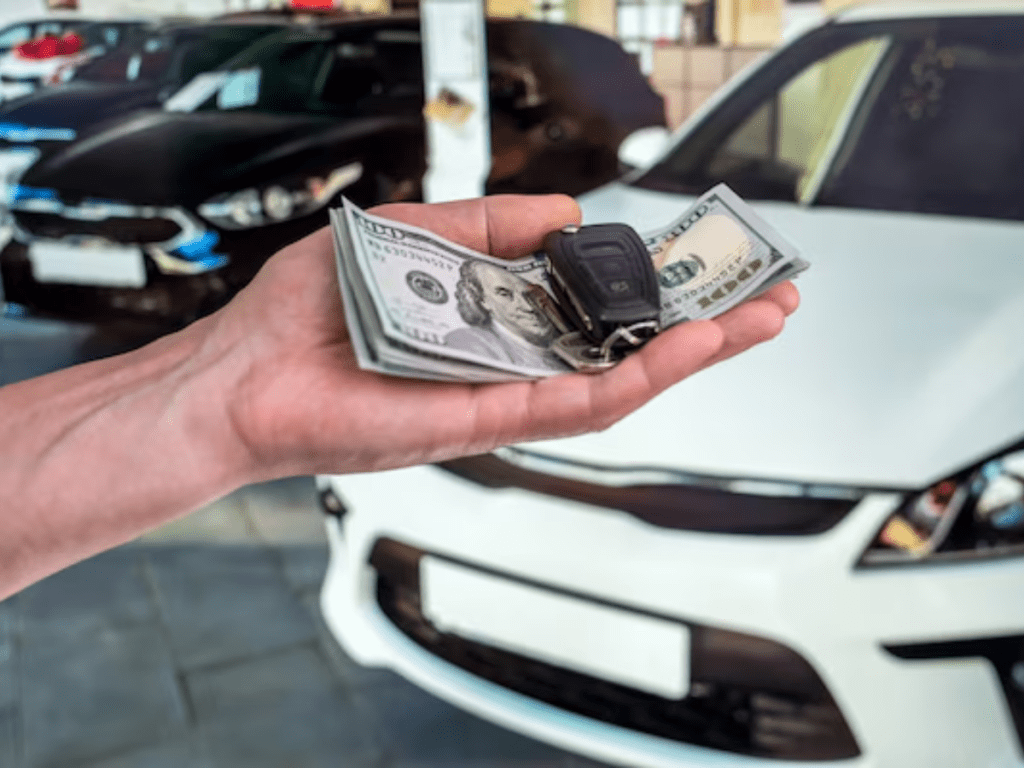Introduction
Buying a car is an important financial transaction, and for most individuals, it means obtaining a car loan to assist with financing the purchase. Yet, if you have poor credit, your car buying aspirations seem beyond reach. Although bad credit may complicate things, it is not necessarily an automatic disqualification for a car loan. Indeed, with the proper strategy, it is still possible to obtain financing despite a less-than-stellar credit history.
In this article, we will look at the available options for individuals with poor credit who require a car loan and give you helpful advice on how to increase your chances of getting approved. If you are a first-time buyer or want to refinance your current car loan, knowing what to do and making informed decisions can help a long way towards your car-owning dreams.
What Is Bad Credit?
It is essential to know what bad credit is before going into the details of how to get a car loan with bad credit. Your credit score is a number that reflects your creditworthiness based on your credit report. Credit scores usually range from 300 to 850, with higher scores reflecting improved creditworthiness.
A “bad” credit rating is typically below 580, although some lenders use slightly different standards. Bad credit usually occurs due to late payments, excessive debt, bankruptcy, or other financial problems. When you have bad credit, it can be more difficult to qualify for loans, and if you do qualify, you can expect to pay higher interest rates.
Do You Qualify for a Bad Credit Car Loan?
Short answer is, yes, you can obtain a car loan with bad credit. Most lenders will provide funding to borrowers with poor credit, although there might be some conditions attached. Lenders’ top priority is reducing their risk, so they will analyze your credit score, income, employment status, and overall financial standing before approving your loan request.
Yet it is crucial to appreciate that bad credit car loans can come at a cost, such as higher interest rates, shorter loan durations, and more stringent repayment conditions. This is simply because lenders consider borrowers with bad credit to be riskier customers. The good news is that you can increase the probability of securing a car loan even with bad credit by taking the right actions.
Steps to Enhance Your Prospects of Obtaining a Car Loan with Bad Credit
If you are worried about your bad credit impacting your chances of obtaining a car loan, there are a number of steps you can take to enhance your prospects of approval. By taking proactive measures to enhance your creditworthiness and shop intelligently, you can improve your chances of obtaining a loan that suits you.
1. Know Your Credit Score
The process begins with knowing your credit score. It is important to find out your credit score before applying for a car loan. You need to check your credit score in order to know where you stand. This will give you an indication of whether you would be eligible for a loan and also tell you the areas you need to work on.
You can get a free credit report once a year from leading credit bureaus. Besides the score, the report will also offer a comprehensive breakdown of your credit history, including any negative marks like late payments, defaults, or bankruptcies.
If your credit score is lower than anticipated, take some time to boost it before applying for a mortgage. Even small improvements, like paying off a credit card balance or challenging any inaccuracies in your credit report, can make a difference in your credit score.
2. Save for a Larger Down Payment
A bigger down payment can greatly improve your chances of being approved for a car loan, particularly if you have poor credit. Lenders will be more willing to approve a loan if you are making a bigger down payment because it lowers their risk. A bigger down payment also indicates to the lender that you are financially stable and serious about making the loan pay off.
Shoot for at least 20 percent of the value of the car as a down payment. If you can afford to put down more, so much the better. This not only assists with loan approval but also decreases the total amount you must finance, reducing your monthly payments.
3. Shop Around for Lenders
If you have poor credit, it is extremely important to compare loan terms from various lenders. Traditional banks and credit unions may have tough lending requirements, but there are quite a number of lenders, such as online lenders and specialty lenders, who specialize in lending to people with poor credit. These lenders are likely to be more accommodating and open to working with you to identify a loan that meets your budget and economic situation.
Remember that certain lenders will give “subprime” loans to those with poor credit. Such loans will often have a higher interest rate, but if you really need the car loan and don’t mind paying a little extra, they might be the way to go. While searching around, make sure you look at interest rates, loan length, fees, and repayment methods to see which is best for you.
4. Use a Co-Signer
If your credit isn’t good enough to get a loan on your own, ask someone who has better credit to co-sign the loan. A co-signer is someone who will be responsible for paying back the loan if you cannot make payments. A co-signer can make it more likely that you’ll get approved and even get you a better loan with lower interest rates.
But note that a co-signer is assuming a huge responsibility, and their credit score can be impacted if you fail to make payments. Make sure to discuss the loan terms with your co-signer and confirm that you are both okay with the agreement.
5. Consider a Secured Loan
Should you fail to qualify for an unsecured car loan because of bad credit, you might want to apply for a secured car loan. A secured loan is one where you put up an asset, like the car itself, as security. This provides more security for the lender, so there is a higher chance that they will accept your loan application.
In the case of an automobile loan, the car you buy will be collateral. If you default on the loan, the lender can take the car. Although secured loans are less difficult to qualify for, there is a risk that you will lose your car if you don’t make payments on the loan, so you need to ensure you can afford to pay the monthly installments before going ahead.
6. Be Ready for Higher Interest Rates
When you have bad credit, you need to be ready for higher interest rates. Lenders give higher interest rates to bad credit borrowers because they are higher risk. Although you cannot escape higher rates altogether, there are a few things you can do to reduce the effect:
- Select a shorter loan period to lower the total amount of interest paid throughout the loan duration.
- Pay extra whenever possible to amortize the principal quicker.
- Compare offers from several lenders and shop around for the most competitive rate.
7. Enhance Your Debt-to-Income Ratio
Lenders will also look at your debt-to-income (DTI) ratio when they consider your loan application. This ratio is a comparison of your debt payments and income each month and allows lenders to decide if you can handle the loan. The lower your DTI ratio, the better your chances for approval.
To have a better DTI ratio, pay off higher-interest debt and lower your monthly payments. If you already carry loans or credit card balances, consider consolidating or refinancing to reduce payments.
8. Consider Purchasing a Less Costly Car
If you are finding it difficult to obtain a loan to buy a car with bad credit, it is best that you purchase an inexpensive vehicle. The lower the car’s value, the lesser will be the probability of it being rejected at loan approval, especially when one has a poor credit score. The smaller amount borrowed also leads to less amount of monthly installments, thereby easing the repayment burden.
Find cars that are affordable, reliable, and require lower insurance premiums. You don’t have to purchase a brand-new car; second-hand cars can be a great deal if you are on a budget.
Final Thoughts
Although it might appear to be challenging to secure a car loan with poor credit, it is not out of the question. By making certain changes to your credit score in advance, saving more for a bigger down payment, comparing lenders to get the best deal, and exploring alternatives such as co-signers and secured loans, you stand a greater chance of being approved for a car loan.
Keep in mind that taking a car loan is a serious commitment, and you should only borrow what you can easily pay back. Spare some time to consider your choices, develop your credit, and select a loan that suits your needs and financing objectives.
With persistence and the proper methodology, you are able to drive off in a vehicle that will meet your needs, even with less than impeccable credit.

